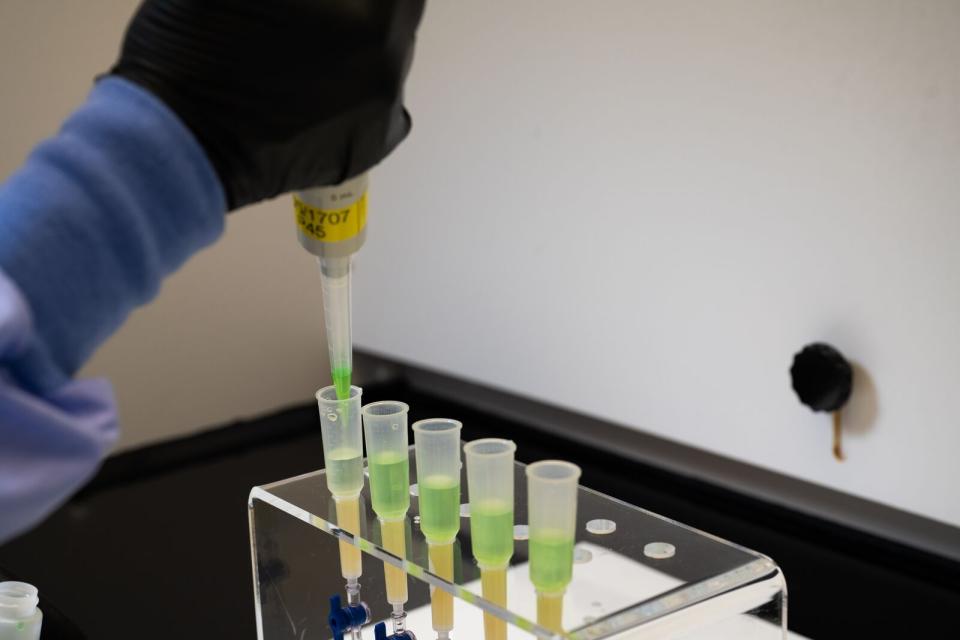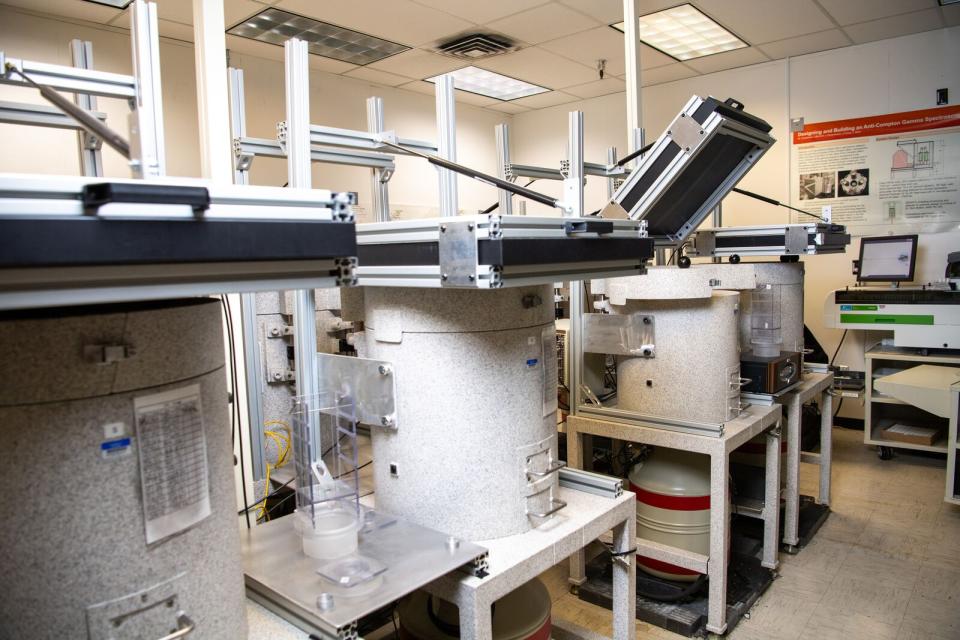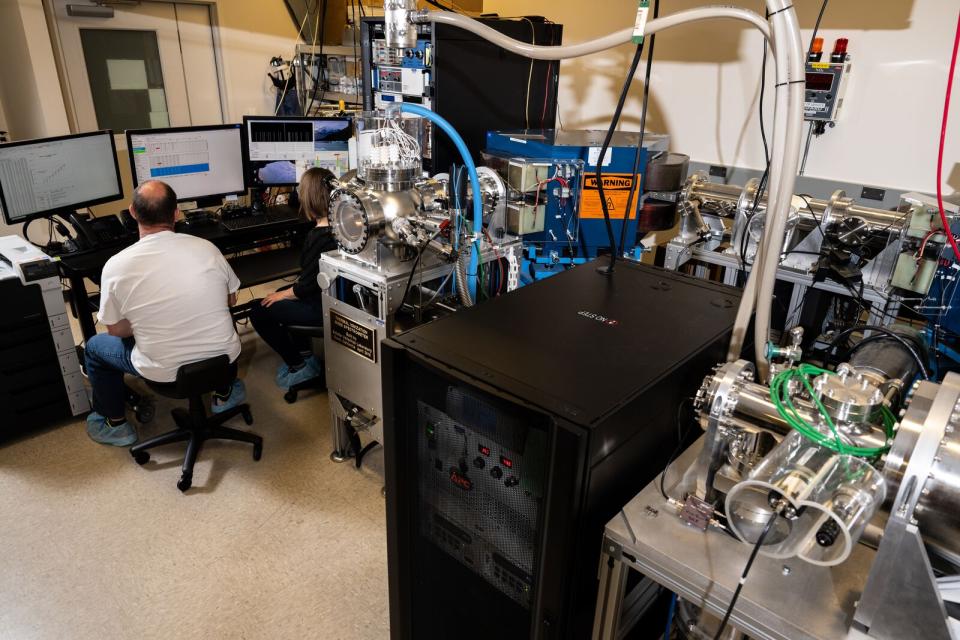Nuclear Forensics
Nuclear Forensics
Investigating nuclear materials
Investigating nuclear materials
Our capabilities in nuclear forensics help determine the origin of nuclear material or devices that could be used in nuclear or radiological attacks against U.S. interests.
(Graphic by Chris DeGraaf | Pacific Northwest National Laboratory)
Pacific Northwest National Laboratory (PNNL) is a critical provider of research, technology, and operations for the United States’ pre- and post-detonation nuclear forensics missions. We leverage more than 40 years of experience in radiochemistry, plutonium processing science, and nuclear material detection technologies.
What is nuclear forensics?
Nuclear forensics is the study of nuclear and radioactive materials to determine their origin and history in the context of law enforcement investigations. These materials include pre-detonation nuclear objects, pre-detonation nuclear devices, and post-detonation nuclear debris. PNNL is involved in nuclear forensics at all three levels of investigation.
Nuclear Forensics Program Manager: Lori Metz

Nuclear forensic capabilities
Nuclear forensic capabilities involve a combination of chemistry, radiometric detection, and mass spectrometry. PNNL excels in all three categories using specialized facilities designed to handle all types of samples.
Also, PNNL launched the Nuclear Forensics Transformational Innovation initiative to dramatically reduce forensics timelines by fundamentally changing the nuclear material analysis process.
Chemical separations
Nuclear forensics requires detection of individual isotopes across the periodic table. To analyze many of these isotopes, they must be chemically isolated to mitigate the impacts of analytical interferences. Chemical purification focuses on optimizing these chemical separations.
Contact: Nic Uhnak

Radiation detection
One method for detecting the array of analytes required for nuclear forensics is to measure the associated decay products. These products include alpha, beta, and gamma radiation. Radiation detection is especially efficient for isotopes with relatively short half-lives, such as fission and activation products.
Contact: Bruce Pierson

Mass spectrometry
Another method for detecting analytes required for nuclear forensics is mass spectrometry, which involves counting atoms directly as opposed to their decay products. Mass spectrometry is primarily focused on isotopes with relatively long half-lives or that are not radioactive, such as the actinides or other common stable isotopes.
Contact: Sean Scott

Internship Opportunities
For students interested in analytical chemistry, nuclear forensics offers a multitude of opportunities due to being inherently multidisciplinary. Students interested in nuclear forensics should contact Lori Metz, or any of the other contacts listed above in the specific subject areas. Visit PNNL’s internship page for more information on internship opportunities.